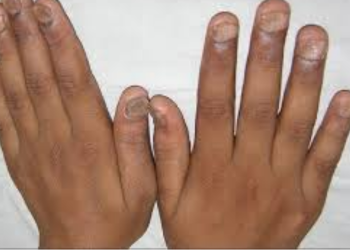Sinusitis

Sinusitis is an inflammation, or
swelling, of the tissue lining your sinuses. Sinuses are structures inside the face
that are normally filled with air. Bacterial infections, viral infections, and
allergies can irritate them, causing them to get blocked and filled with fluid.
This can cause pressure and pain in the face, nasal congestion (a stuffy nose),
and other symptoms
TYPES
OF SINUSITIS
- Acute sinusitis: Symptoms like nasal
congestion, drainage, facial pain/pressure, and decreased sense of smell lasting
less than four weeks. It’s usually caused by viruses.
- Subacute sinusitis: Symptoms last four
to 12 weeks.
- Chronic sinusitis: Symptoms last
at least 12 weeks. Bacteria are usually the cause.
- Recurrent acute sinusitis: Symptoms
come back four or more times in one year and last less than two weeks each
time.
SYMPTOMS
- Postnasal drip.
- Running nose with thick yellow or green
mucus.
- Stuffy nose.
- Facial pressure. This might get worse
when you move your head around or bend over.
- Pressure or pain in your teeth.
- Ear pressure or pain.
- Fever.
- Bad breath or a bad taste in your
mouth.
- Cough.
- Headache.
- Tiredness.
CAUSES
- Common cold.
- Flu
- Streptococcus pneumonia bacteria.
- Haemophilus influenza bacteria.
- Moraxella catarrhalis bacteria
- Nasal and seasonal allergies
RISK
FACTORS
- Nasal allergies.
- Asthma
- Nasal Polyps
- Deviated Nasal Septum
- A weakened immune system
- Smoking.
DIAGNOSIS
- Nasal endoscopy
- Nasal swabs.
- Imaging.
- Allergy testing.
PREVENTION
- Rinsing your nose with saline
- Steps to prevent allergies like
avoiding your known allergy triggers like dust, pollen, or smoke.
- Good hand washing and other habits reduce your risk of getting sick with infectious diseases.
- Avoiding smoke.





